
In the wake of Donald Trump’s election to the US presidency, global multilateralism has been thrust into a phase of convulsion and redefinition. Actors worldwide are readjusting to a multipolar order in which institutions must reassess their goals, possibilities, and priorities. Both the European Union and Brazil, with their extensive histories of commitment to the multilateral form, are uniquely affected by these changes. How will the future of multilateralism look on both sides of the equator?
On November 6-7, scholars from the EU-funded ENSURED project — a global consortium focused on the robustness, effectiveness, and democratic orientation of multilateralism — met with scholars and practitioners from Brazil and across the Global South to explore common solutions for the future.
This ENSURED event in Rio de Janeiro was the first in the project's global event series to take place outside the EU and in the Global South. The event included numerous panels reflecting ENSURED’s thematic focuses of climate, trade, migration, health, and digitalisation, on which the ENSURED team has produced several in-depth research reports as well as policy briefs, blogs, and other outputs. Each panel was made up of both ENSURED team members, who present the extensive findings and recommendations detailed in these reports, alongside Brazilian and Global South scholars who offered their perspectives on the debates. Colleagues from the ENSURED expert network joined as well.
Watch the Opening Talk:
More than just a dissemination event, the two-day workshop was designed to be inclusive and consultative because effective, democratic, and robust multilateralism can only respond to current challenges if all the stakeholders are at the table. More than 50 scholars, experts, officials, and students were in attendance.
The speakers included:
- Deborah Barros Leal, University of New South Wales
- Steven Blockmans, CEPS Brussels
- Matteo Bursi, IAI Rome
- Paulo Buss, former Director, Oswaldo Cruz Foundation
- Hylke Dijkstra, ENSURED Coordinator and Maastricht University
- Paulo Esteves, IRI/PUC-Rio
- Mirko Heinzel, Maastricht University
- Monica Herz, IRI/PUC-Rio
- Florian Hoffmann, Law/PUC-Rio
- Siqi Li, University of International Business and Economics Beijing
- Kai Michael Kenkel, IRI/PUC-Rio
- Luisa Lobato, IRI/PUC-Rio
- Rafael Mesquita, Federal University of Pernambuco
- Carlos Milani, Rio de Janeiro State University's Institute for Social and Political Studies
- Carolina Moulin Aguiar, Federal University of Minas Gerais
- Mihaela Papa, Massachusetts Institute of Technology
- Felix Peerboom, Maastricht University
- Andrea Ribeiro Hoffmann, IRI/PUC-Rio
- Isabel Rocha de Siqueira, IRI/PUC-Rio
- Carolina Salgado, IRI/PUC-Rio
- Tu Xinquan, University of International Business and Economics Beijing
- Pedro Villardi, Public Services International Brasil
- Clara Weinhardt, ENSURED Deputy Coordinator and Maastricht University
The event was the result of a partnership between ENSURED, the Institute of International Relations at the Pontifical Catholic University of Rio de Janeiro (IRI/PUC-Rio), and the Carlos Chagas Filho Research Support Foundation in the State of Rio de Janeiro (FAPERJ).

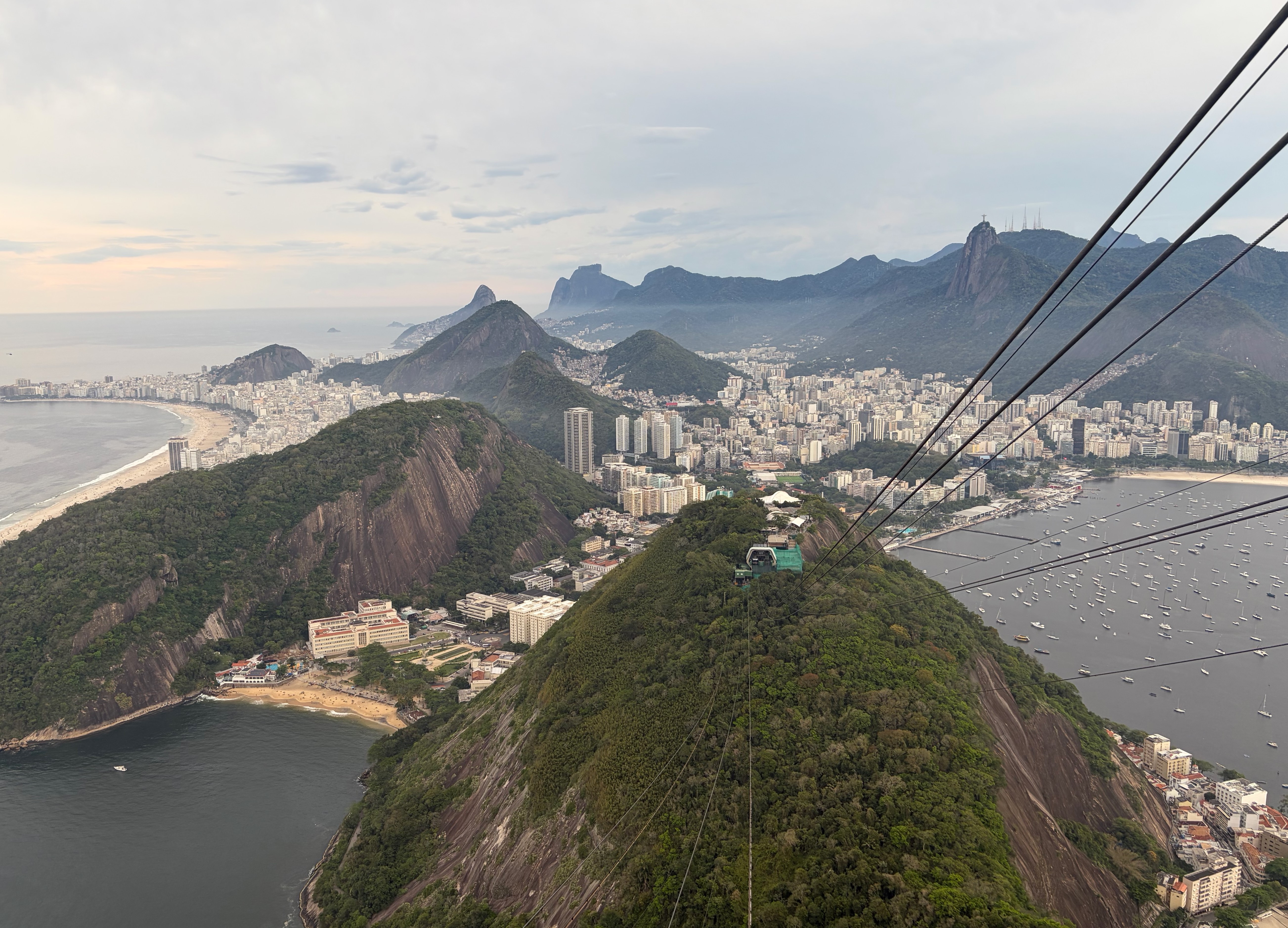
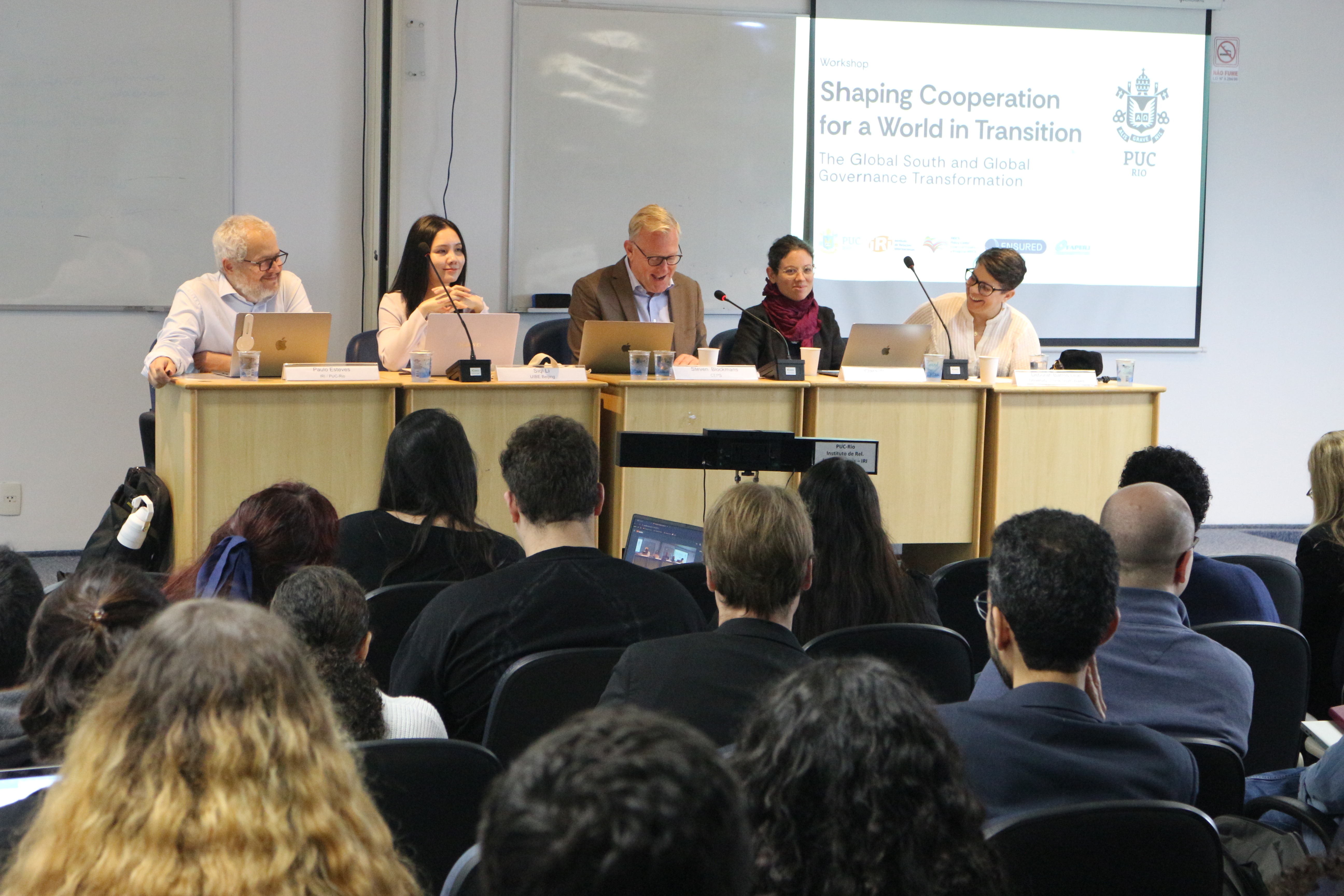
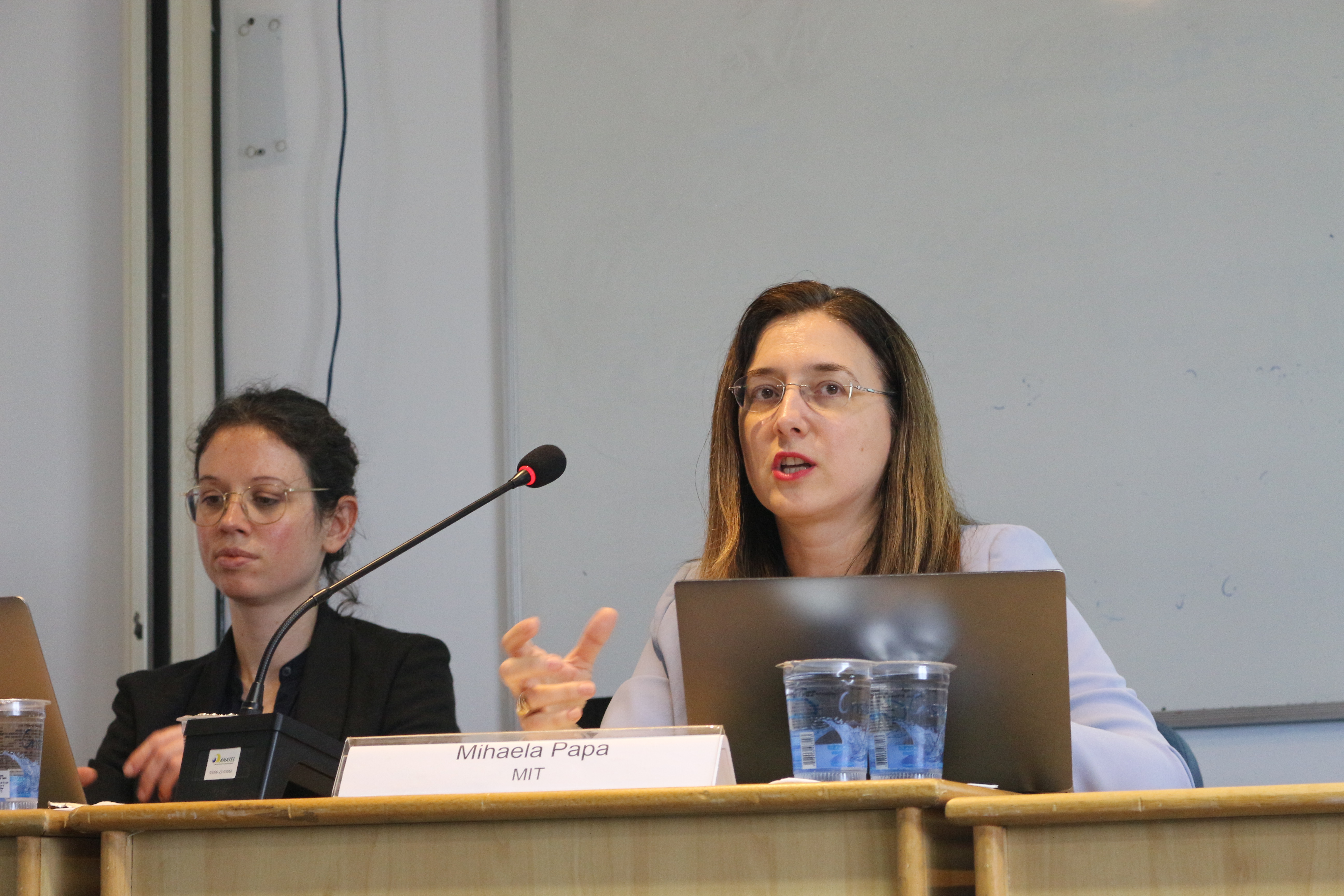


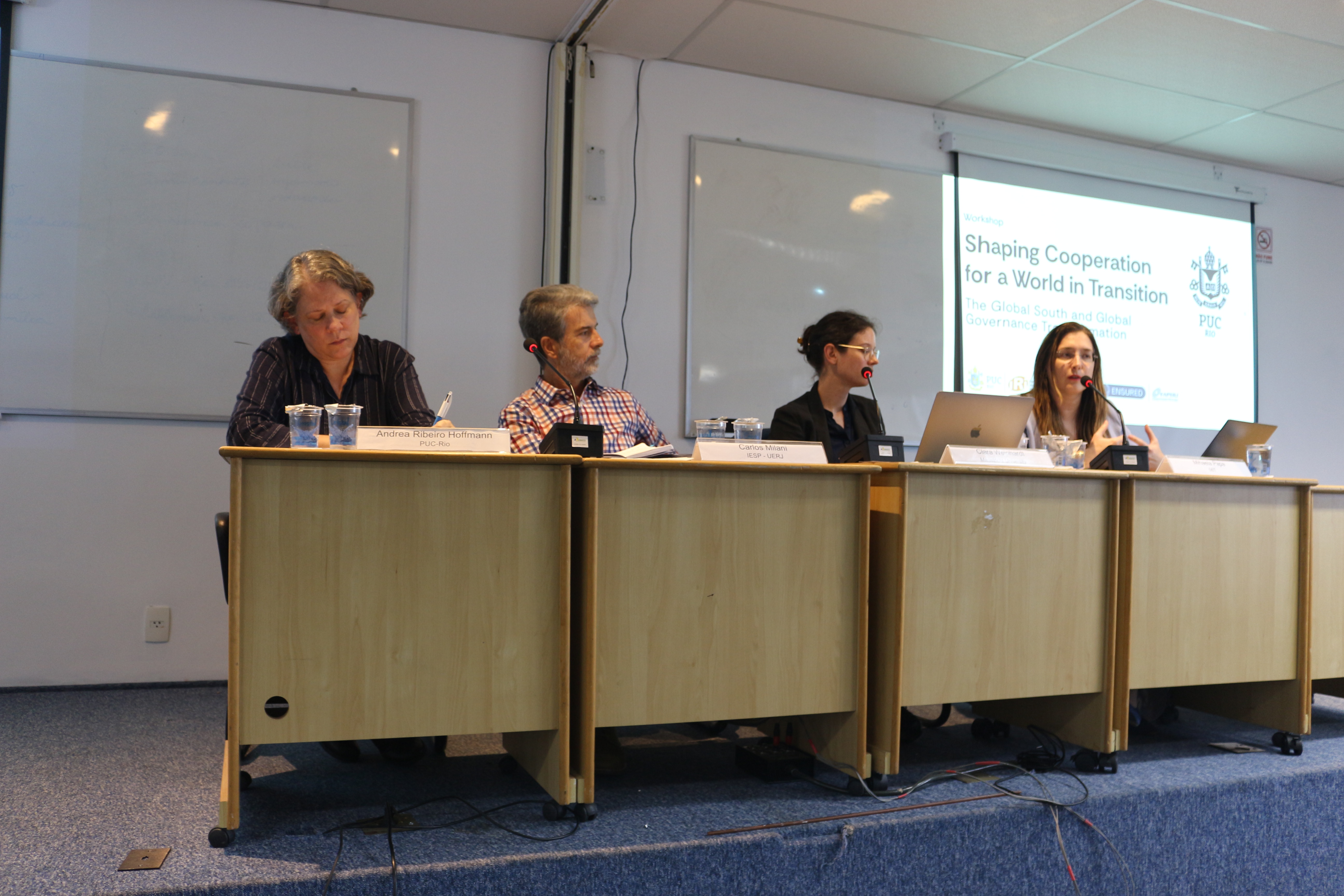
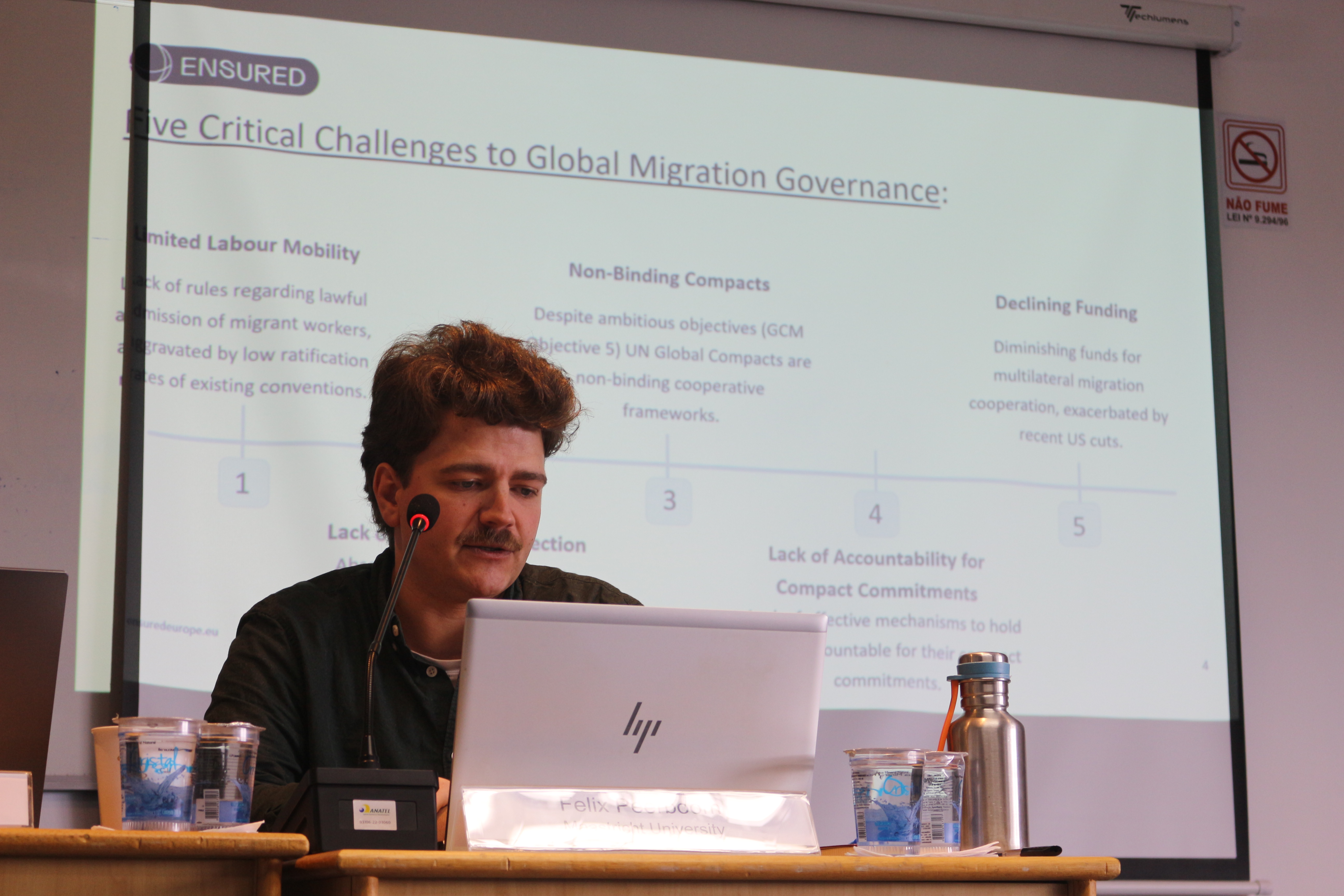
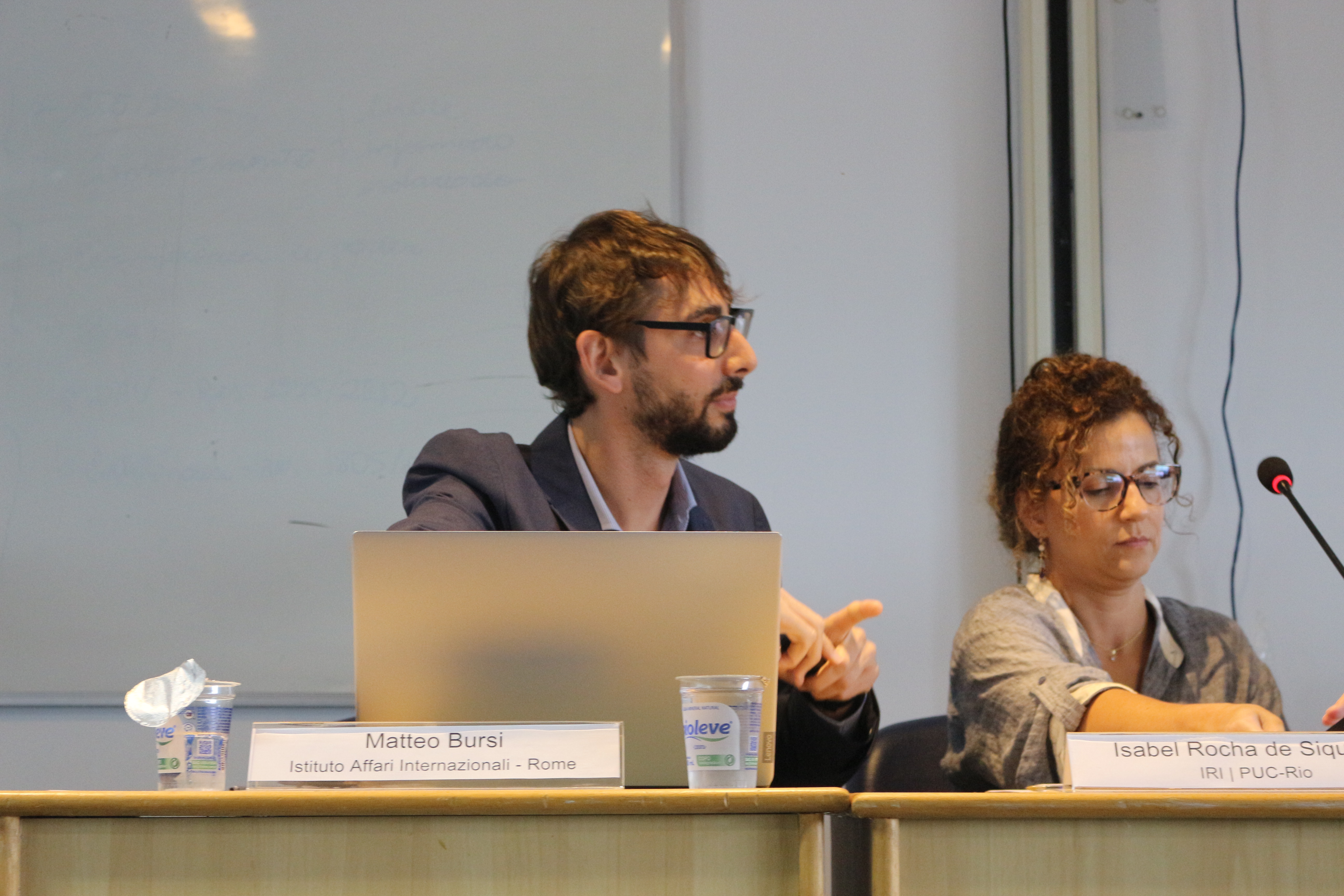
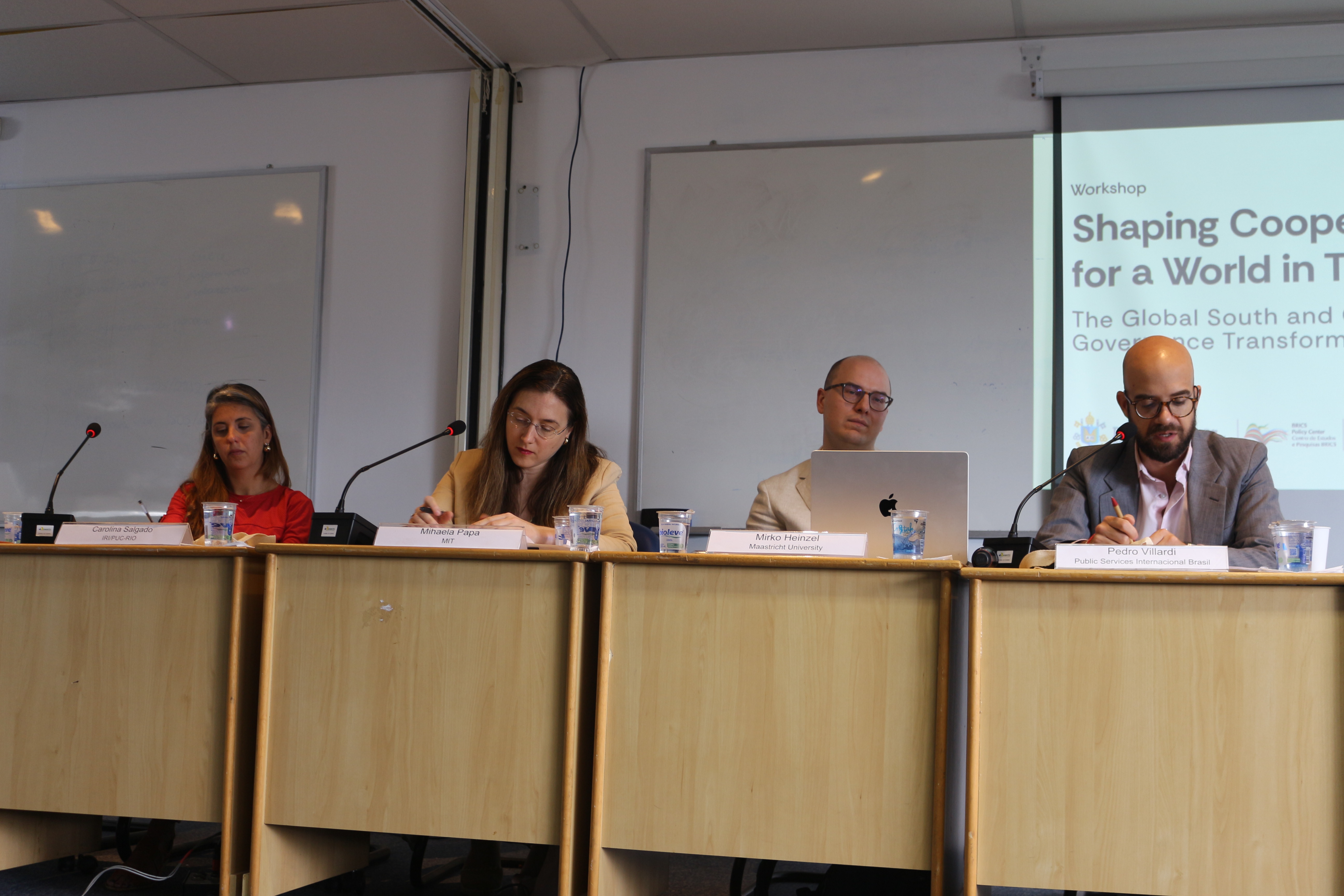
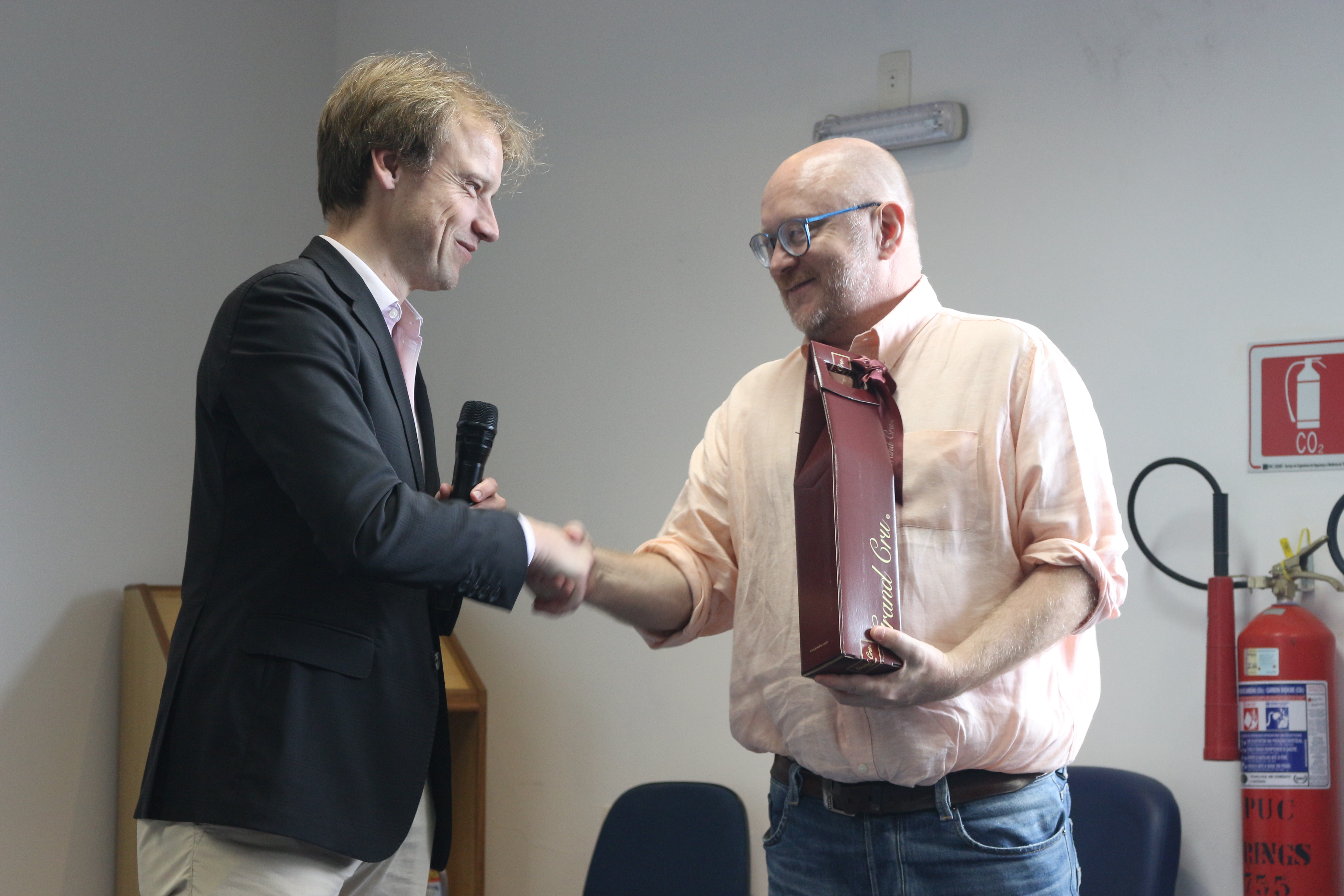
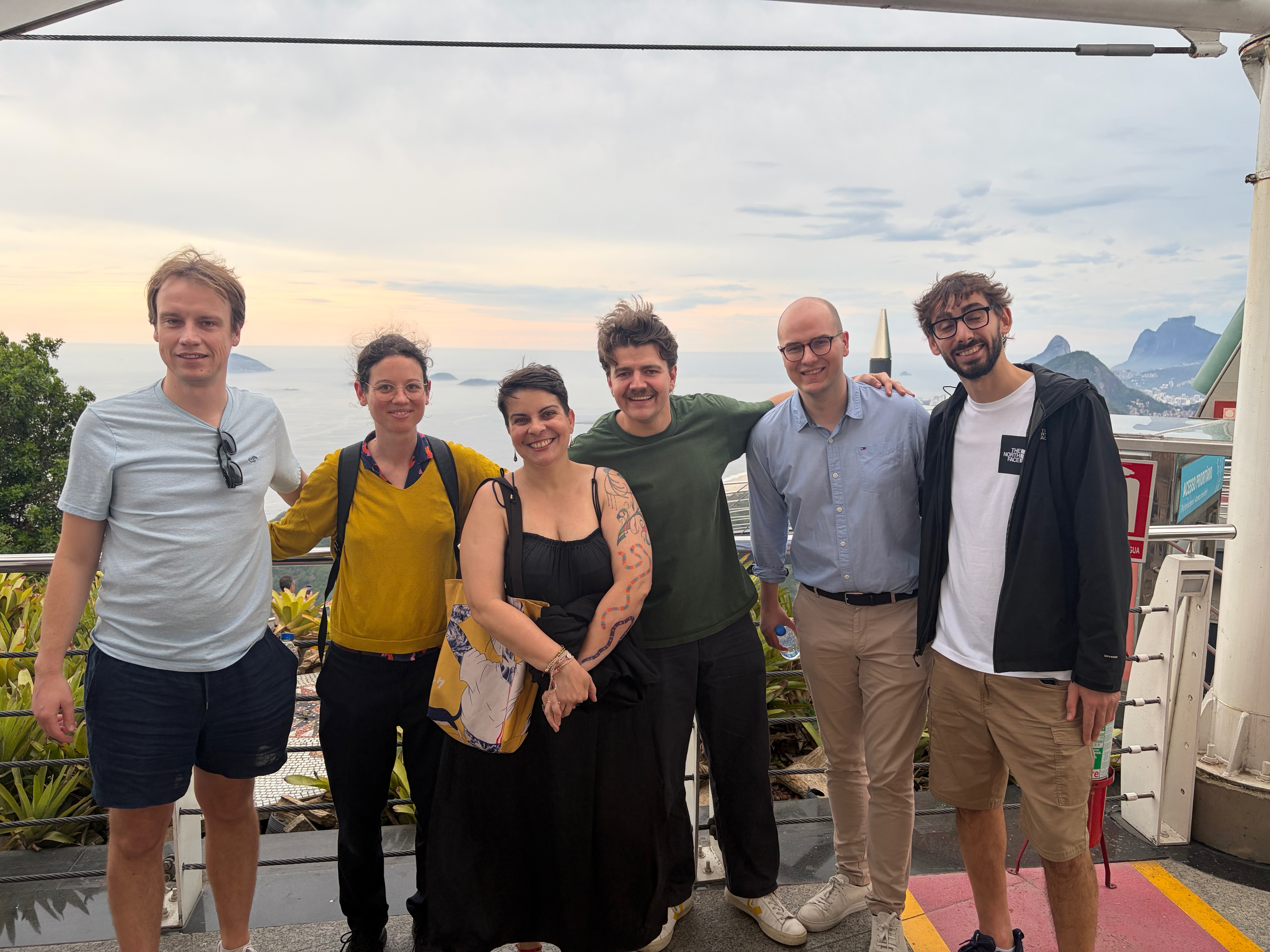
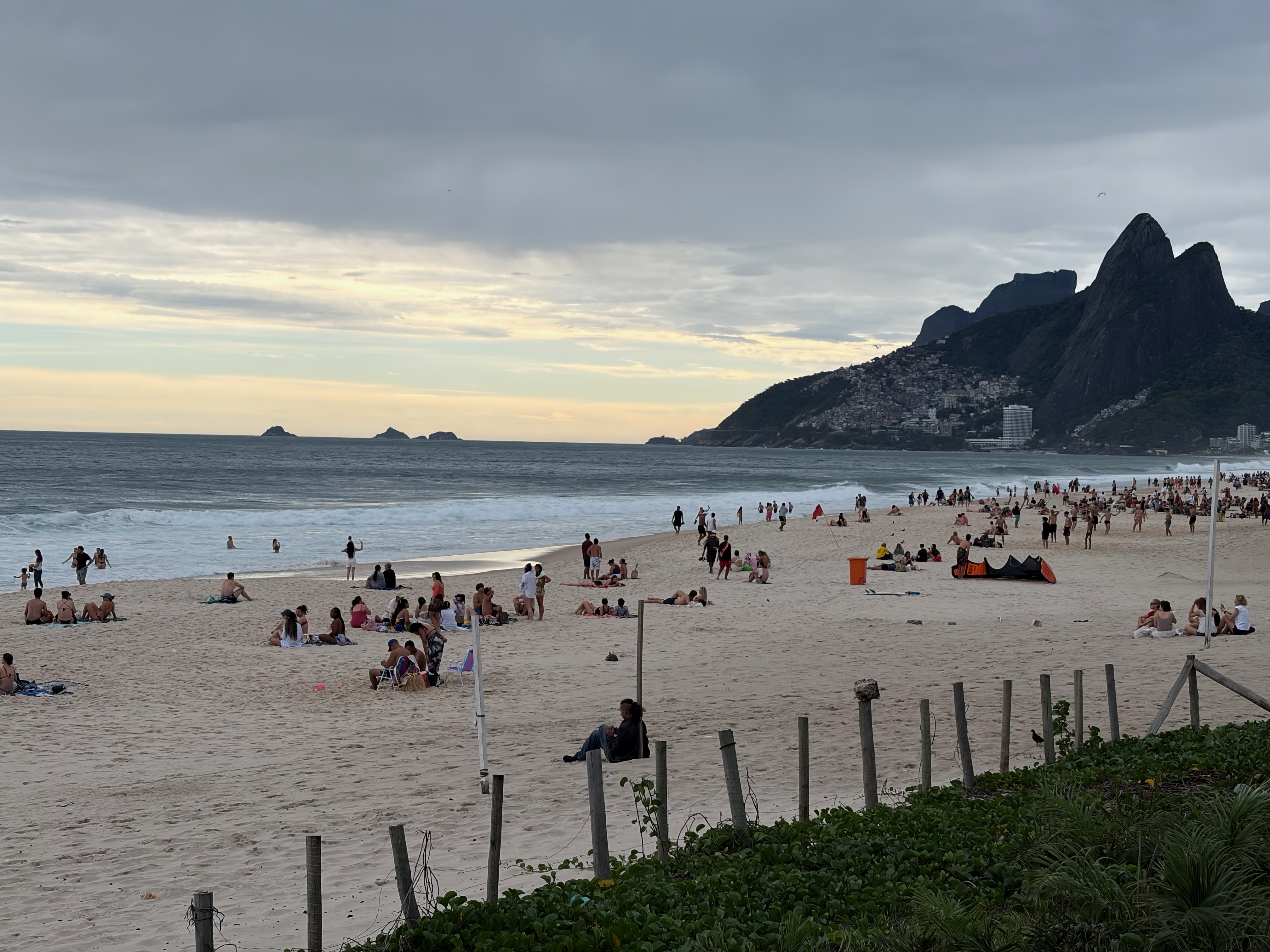


.png)
